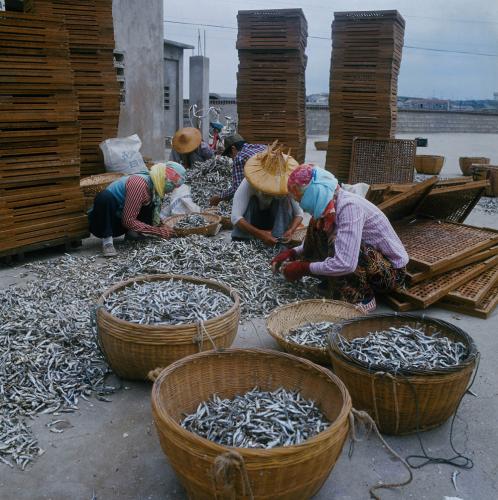China and Taiwan to start talks on trade deal
Financial Times | January 25 2010
China and Taiwan to start talks on trade deal
By Robin Kwong in Taipei and Kathrin Hille in Beijing

China and Taiwan are set to start talks on Tuesday on a trade deal termed the Economic Co-operation Framework Agreement (ECFA), China said Sunday.
Such an agreement could bring large-scale tangible changes in the cross-Strait economic relationship that have eluded Taiwan’s president Ma Ying-jeou so far, although he radically changed the island’s policy towards China to an agenda of rapprochement. The talks come as Taiwan is increasingly viewing China as its most important market rather than just a manufacturing base for exporting to Europe and the US.
An ECFA, and the hope that it would buy Taiwan an entry ticket to the rapidly developing web of regional trade deals in Asia, has been a core part of Mr Ma’s policy platform ever since he started campaigning for the presidency in 2007. It has been distrust between the two governments as well as fears in Taiwan of even greater economic dependence on China that delayed the first round of talks until now.
San Long Industrial, an auto parts manufacturer just outside Taipei, is a prime example of a company likely to benefit from a trade deal with China.
“Business has not been so good the last few years,” says owner Cheng Yu-lung, who founded the company 46 years ago but has seen revenue fall from about T$1bn ($31m) four years ago to T$380m last year. The factory, which makes plastic parts such as door handles and dashboard panels for Ford, Toyota and Nissan car factories in Taiwan, has shed half of its staff – about 200 people – over the last two years.
San Long’s parts cannot break into the Chinese market now because a 17 per cent tariff and the extra cost of shipping parts from Taiwan mean they are not competitive to local suppliers. A trade deal, however, “would open up the market. The Chinese car companies, they want to buy our parts,” says Mr Cheng.
In spite of this Mr Cheng, who also heads the association of factories in Tu Cheng industrial park where San Long is located, says he opposes ECFA. “I just don’t trust the government to deliver the economic benefits they are promising,” he says, adding that many of his smaller neighbours would also be badly hurt by the influx of Chinese products.
“There will certainly be more factory closures in the industrial park if ECFA is signed. This is something that will benefit the big companies but hurt the small businesses,” he says. Mr Cheng’s stance highlights a key stumbling block to what would be a significant step towards normalising economic ties between former civil war rivals China and Taiwan: the bigger battle for ECFA will likely be fought away from the negotiating table and in the hearts and minds of the Taiwanese. Public backlash, egged on by the opposition party, had already forced Taiwan to backtrack on a beef import deal with the US earlier this month and government officials have expressed concern that similar resistance will derail the ECFA negotiations.
ECFA would “help us maintain our export competitiveness ... attract new foreign investment, stimulate Taiwan’s economic growth and boost employment,” Mr Ma said in his new year’s address. The agreement is also a key step towards Taiwan signing independent free trade agreements with other nations, something that China has long blocked because it claims sovereignty over Taiwan.
“North Korea and Taiwan are the only nations that have not participated in the integration process [of Asian economies] ... Taiwan must not be marginalised,” Mr Ma said.
To allay fears about the potential negative impacts of ECFA, Mr Ma’s government has pledged not to open Taiwan to Chinese labour or further agricultural imports, and to invest T$95bn over the next 10 years to help industries adversely affected by ECFA.
Many Taiwanese, however, remain either unconvinced or indifferent. Simon Chen, a computer components seller in Taipei, says that while a trade deal may make it easier for him to source components from China, “ECFA would probably benefit China much more than us, because their production cost is lower”.
Gigi Chu, a housewife and mother of two, says she does not “know what it is exactly and have no interest in finding out. My husband brought a magazine with cover story of ECFA home on Sunday, but I just looked at the entertainment section”.
Wu Den-yih, premier, earlier this month admitted the government still had a lot of room for improvement in spreading its message. “Our most fatal mistake [during the US beef dispute] was that we lacked empathy ... this is a lesson the government needs to learn otherwise we will just run into trouble again in the future,” he said.
Additional reporting by Chen Yu-ting in Taipei





